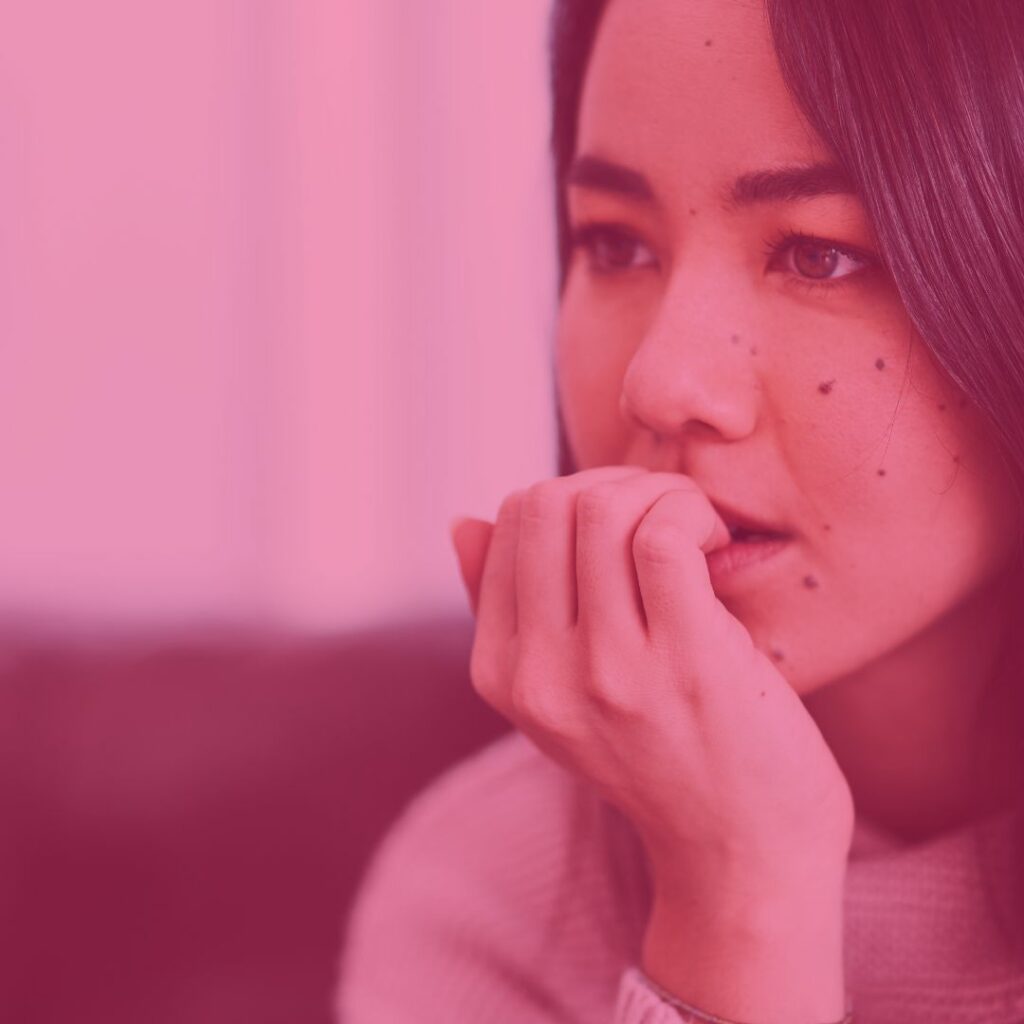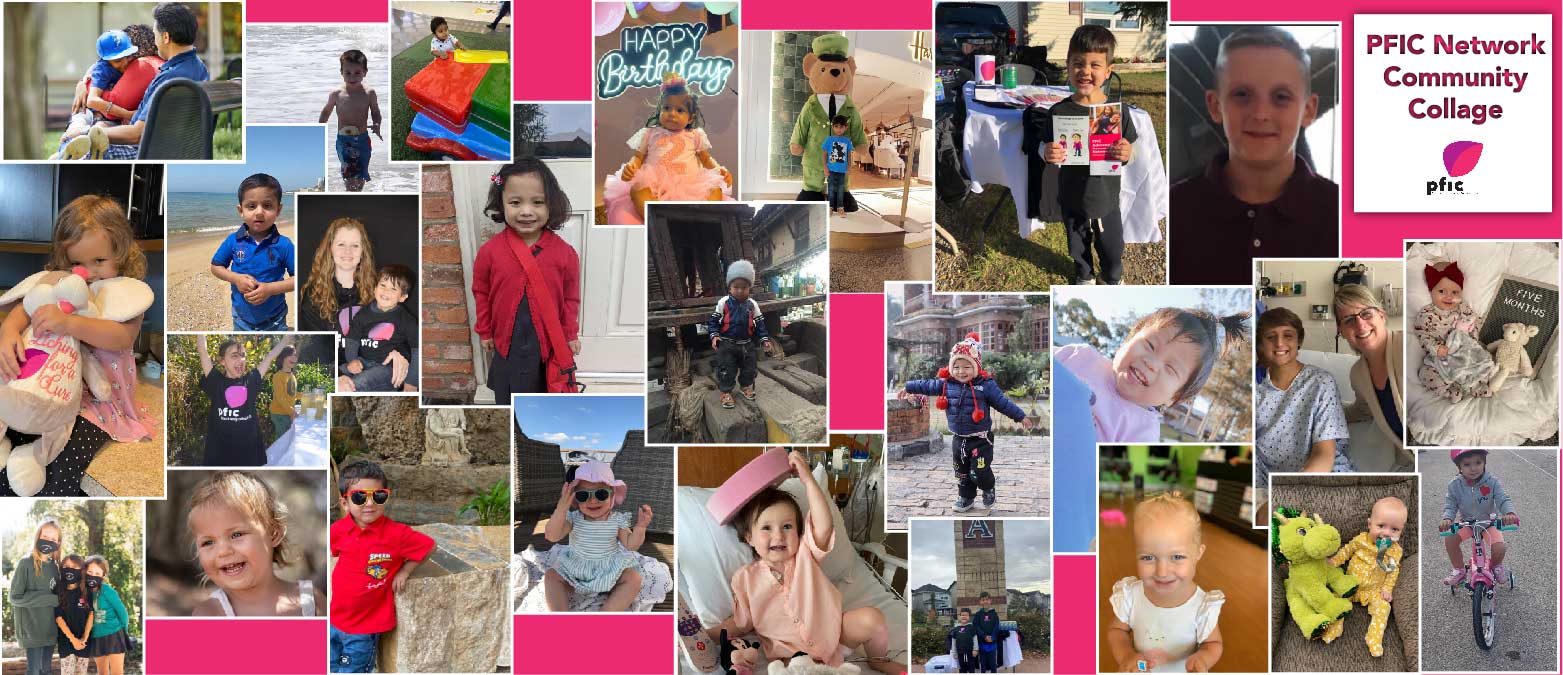Perspectives: Coping with Self-Doubt
This month’s mental health blog post consists of a question from a community member, followed by a response from our Support Group Facilitator, Lisa Jensen. If you would like to submit a question of your own, then email it to mentalhealthsupport@pfic.org. Please note that we are unable to offer medical advice or answer questions that are primarily medical in nature.
We also ask you to keep in mind that the perspectives we offer here are just that–perspectives–and it’s up to each reader to decide what advice is or is not helpful to them.

Community Member Question:
My daughter’s itching waxes and wanes, as do her labs. Sometimes, we do something fun like go for a hike or on a trip, and then, if her itching gets worse, I worry that I caused it by pushing the bounds. Her dad and I are not married, but I share the details of her ups and downs with him. He spends less time with her than I do and consequently, he often sees a healthier child than the one I’m seeing. We had a meeting with her doctor, who recommended that we change the course of treatment. None of the treatment options available to her are ‘normal’ and of course they all carry some risk, and that’s hard, but her doctor feels like we’re at a point where we need to try something different before things get out of hand. Unfortunately, I agree. Her father doesn’t. This really brings up my self-doubt. Am I overreacting? Are we all overreacting? Do I push her too hard? Did I cause this? Based on all that I’ve learned about PFIC and possible treatments, I think we’re right to follow our doctor’s recommendations, but a competing instinct sometimes takes over and thinks maybe we should do nothing. Maybe we’re trying to do too much. I know that’s not true. I know that’s the story I want to tell myself, but the reality is, she has a chronic and progressive illness, and if we don’t do anything, that could end up being not okay. In a world of hypotheticals, how do you know what’s right?
Lisa’s Response:
First, I want to affirm that there’s no roadmap for what you’re facing, and that’s really hard. Every PFIC patient is unique, just as every family is unique. You’re navigating uncharted terrain, scaling cliffs and traversing deserts in pursuit of a place that is safer and better for your child. It’s natural to feel afraid. It’s natural to feel overwhelmed. It’s no surprise at all that you sometimes second guess yourself. Thank you for so openly sharing your struggles. I’m sure that many other parents will find their own experiences reflected in your words.
You ended your letter with a beautiful and poignant question: “In a world of hypotheticals, how do you know what’s right?” In return, I have a question for you: In your life so far, how have you learned to recognize your next right step?
You wrote of your own self-doubt that “I know that’s not true” and “I know that’s the story I want to tell myself.” It sounds as if you’re talking about a kind of knowing that is deeper than your experiences of self-doubt. If you take a moment to drop into that sense of knowing, where do you find it? Does it come with particular physical sensations? Particular emotions? Keep learning to recognize your own sense of knowing. For me personally, my sense of knowing comes with feelings of love rather than feelings of fear—even in scary circumstances. It comes with a physical sense of energy and expansion rather than tension and exhaustion—even when there is hard work ahead. What does your inner knowing feel like? As you learn this about yourself, that space of inner clarity will become a powerful ally.
Self-doubt will still arise; that’s part of being human. When it does, try to greet it with compassion. Treat yourself with compassion. In this particular circumstance, notice that you’ve done what you can. You’ve met with your daughter’s doctor. You’ve educated yourself about PFIC and possible treatments. You’ve been doing this for many years now. When walking uncharted terrain, there are moments when we have to make important decisions based on incomplete information. It sounds like you’re in one of those moments. Pause to acknowledge all the work you’ve done. All the preparation. All the gathering of information and weighing of options. All the attentiveness to your daughter for these many years. Pause to offer compassion to the parts of you that feel doubtful and afraid. Drop into this bigger, wiser part of you that can offer that compassion, and connect with your deepest sense of knowing. There are no guarantees, and yet, if anyone is equipped to make the best next choice for your daughter, you are.

You face an additional complication in your decision-making process: you and your co-parent don’t always see eye-to-eye. You’ve acknowledged how tender, scary, and doubt-ridden your present terrain feels. Odds are, it feels something like that for your co-parent, too. As you talk together about how to proceed, keep that awareness front and center. It might even be worth expressing it out loud to him: This is hard and scary for both of us. We’re both doing our best with the resources at our disposal. We both want what is best for our daughter. As far as that goes, we are completely on the same page. I know we’ve disagreed at times in the past, and odds are, we will disagree again in the future, but let’s agree to both remember that—that we share the same goal.
Consider whether it might be helpful to include a mutual friend, a doctor, a therapist, or a mediator in this conversation with your co-parent. Before entering a potentially thorny and high stakes conversation with him, make sure you set up support for yourself. Would it be helpful to schedule a call with a therapist or friend for right after that conversation? Can you block out time to go for a walk or do something else that soothes and nourishes you? The logistics of taking time for yourself can be very challenging, but please never doubt for a moment that you deserve rest and nourishment. You are bravely navigating uncharted territory and lovingly doing your best to guide your daughter toward a safer and better place. You will both benefit from the kindness and compassion that you offer to yourself.
